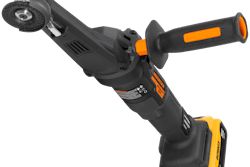Much like skinning a cat, there's more than one way to revive a species of tree. After a 20-year research race, two groups of researches both recently developed chestnut trees that are resistant to the fungal blight that killed billions of American chestnuts early in the 20th century, according to the New York Times.
The American Chestnut Foundation, a nonprofit out of Asheville, N.C., has created hybrids of American chestnuts and fungus-resistant Chinese chestnuts. The Chinese trees essentially build a wall around the fungus before it can secrete enough oxalic acid to create the blight's trademark trunk-engulfing canker. The Foundation is planting thousands of the hybrids on reclaimed Appalachian strip mines through the end of 2014.
Rather than create a hybrid, geneticists at the State University of New York College of Environmental Scientists and Forestry in Syracuse, N.Y., have created a chestnut with a gene from wheat that produces a blight-fighting enzyme. Because the tree is genetically modified, planting it in the wild would require federal approval, but because it isn't mixed with a Chinese chestnut, researchers are confident it will grow as well as other American chestnuts. Researchers hope to begin a controlled field trial this autumn, planting it on a reclaimed mine to test its adaptability to harsh soils.
Bryan Burhans, the Chestnut Foundation's president, doesn't really see it as a competition. "This is a war against chestnut blight," he told the Times. "And we leave nothing off the table when we fight."




















